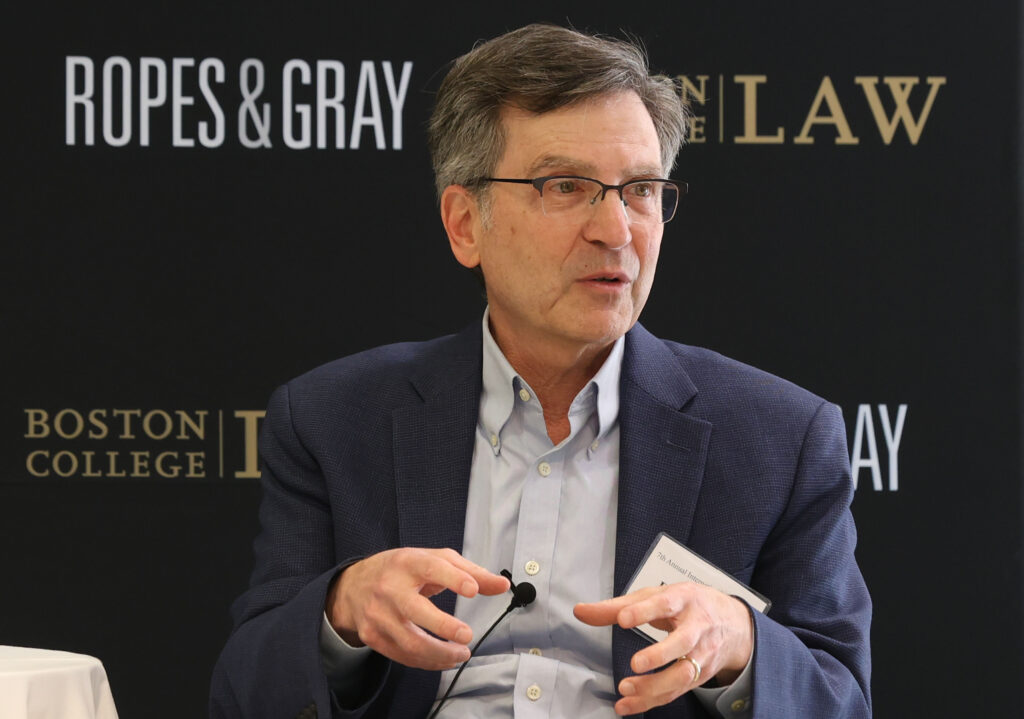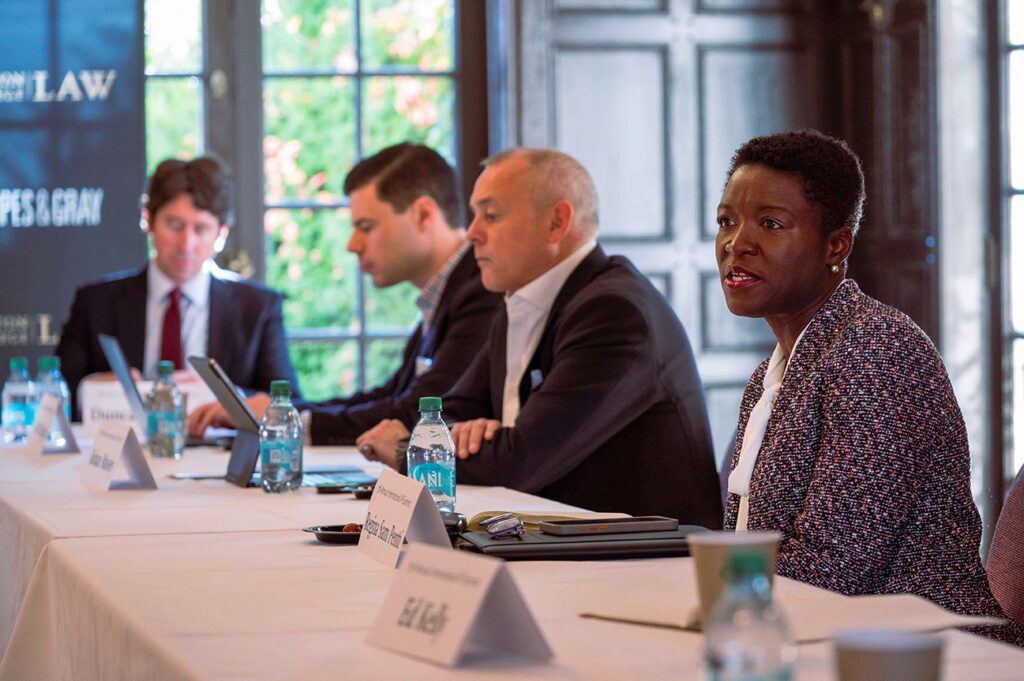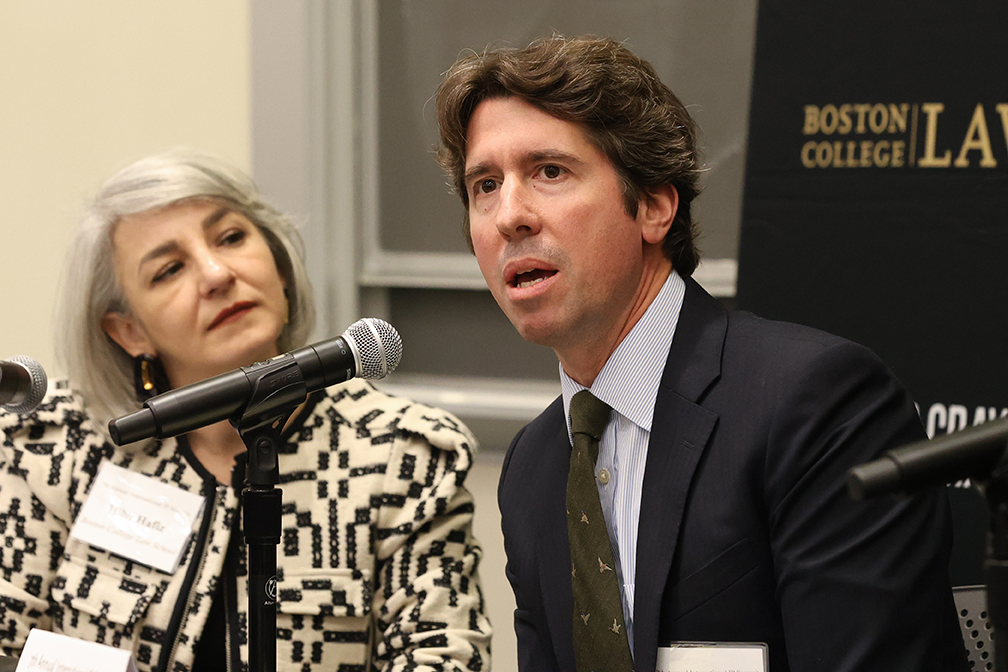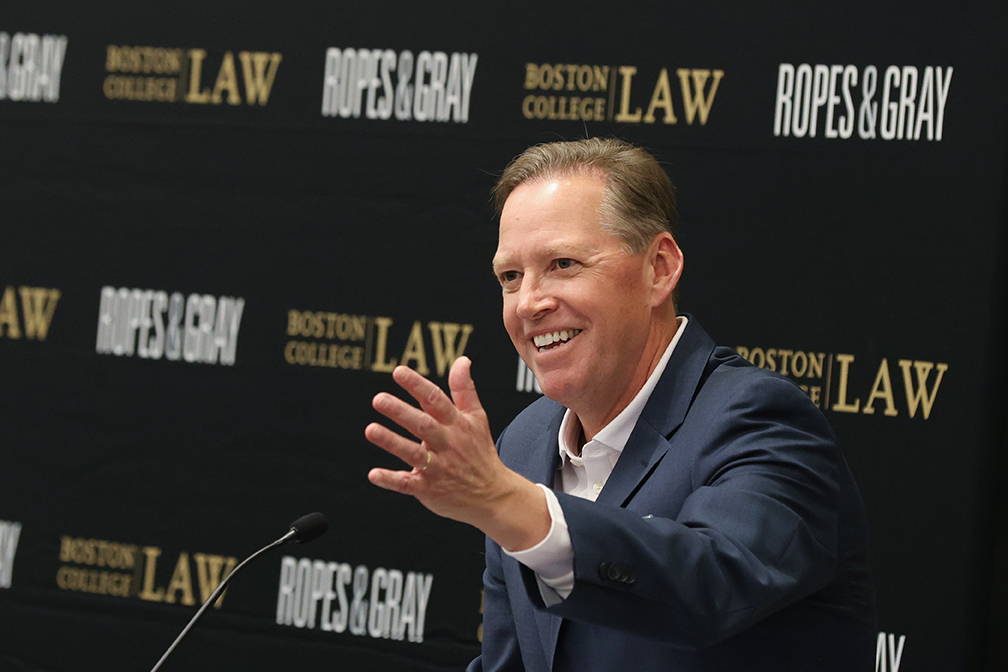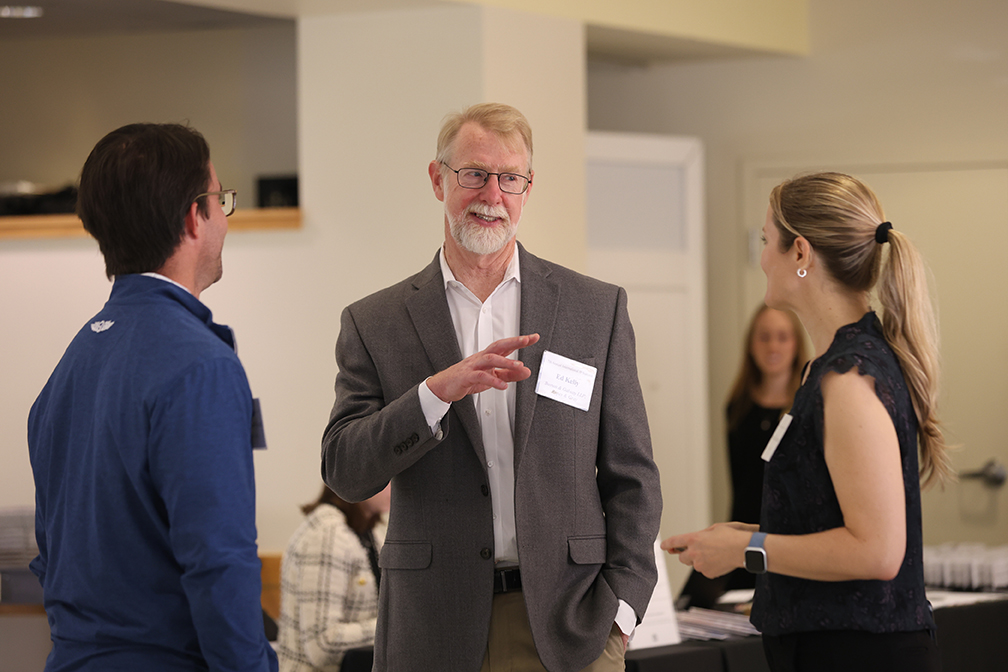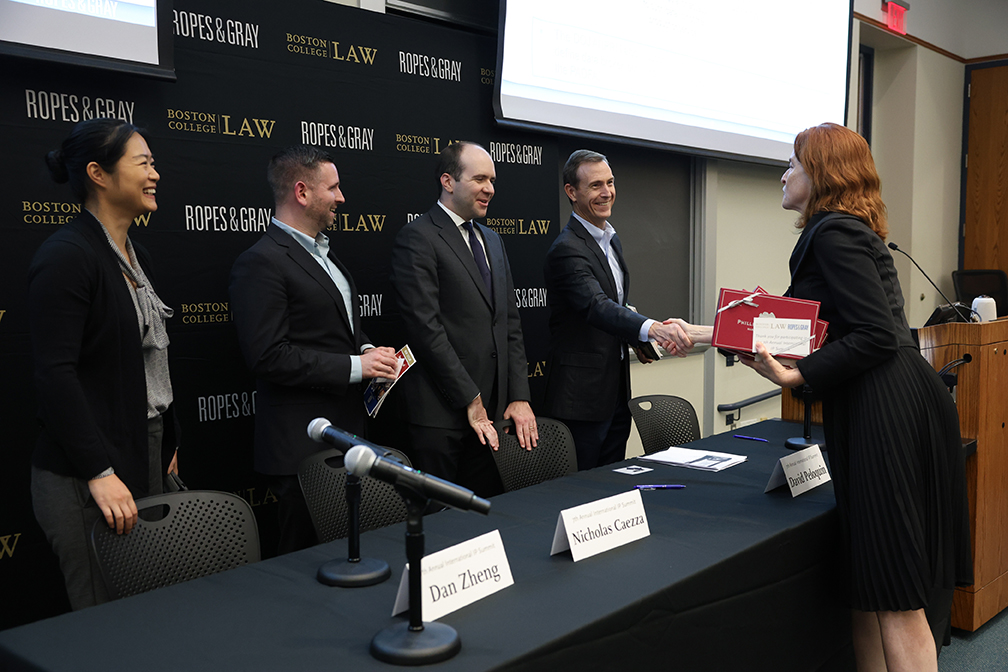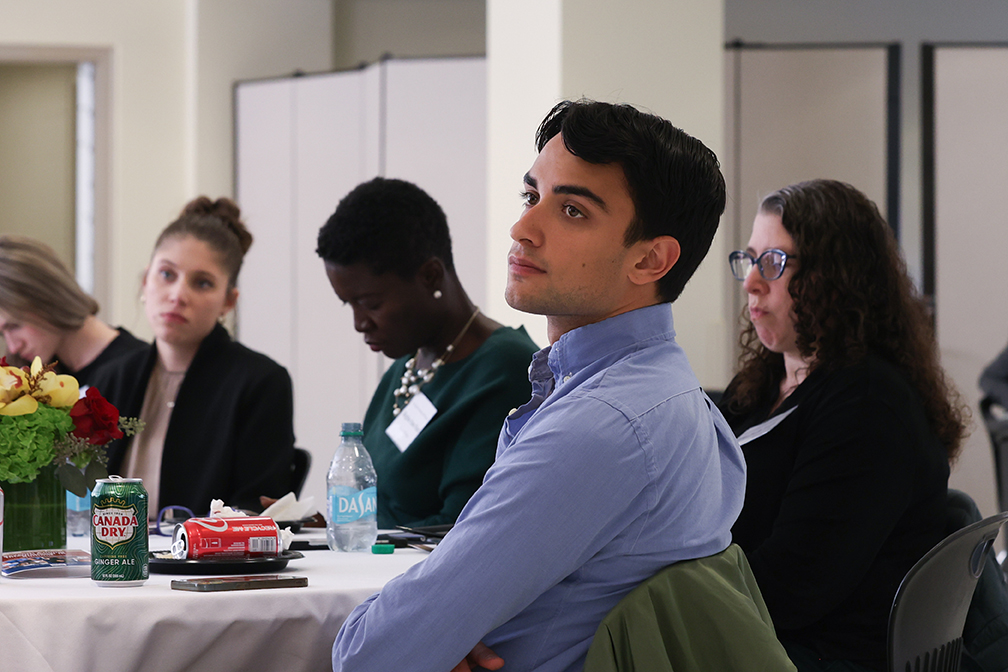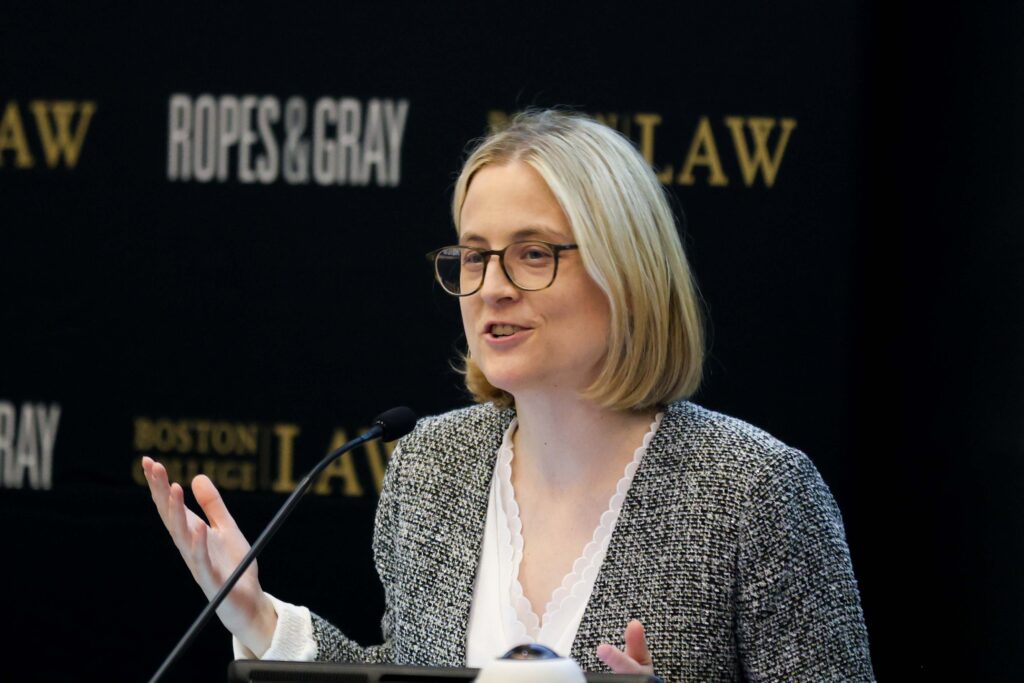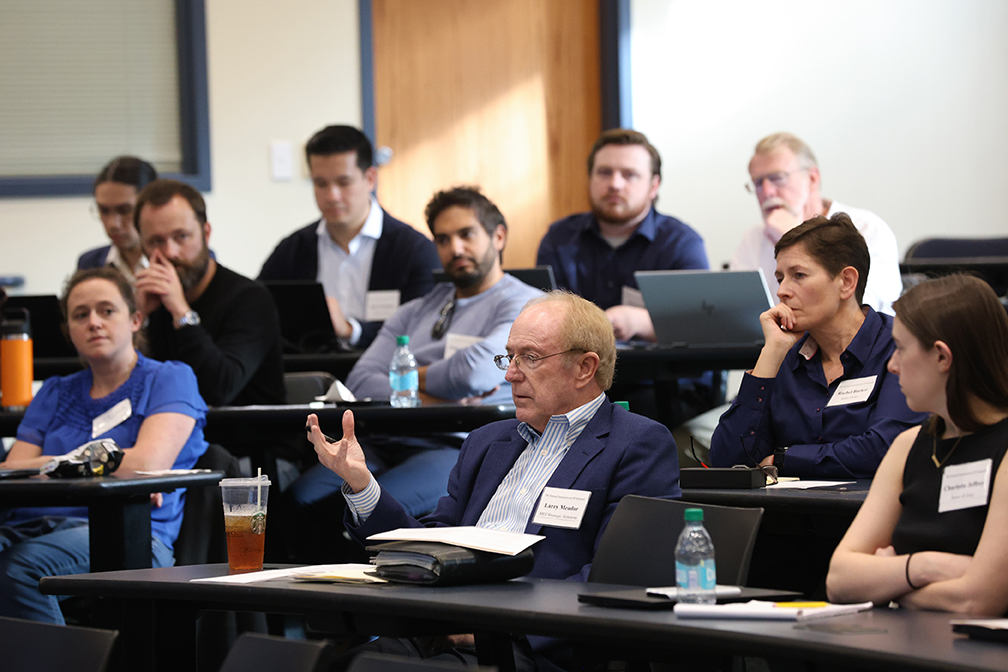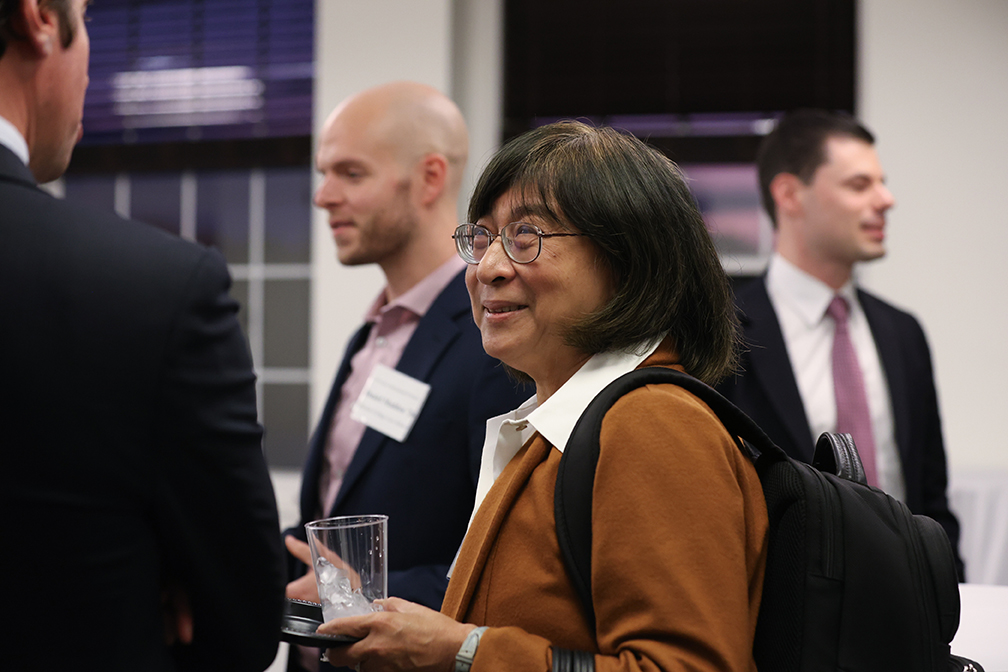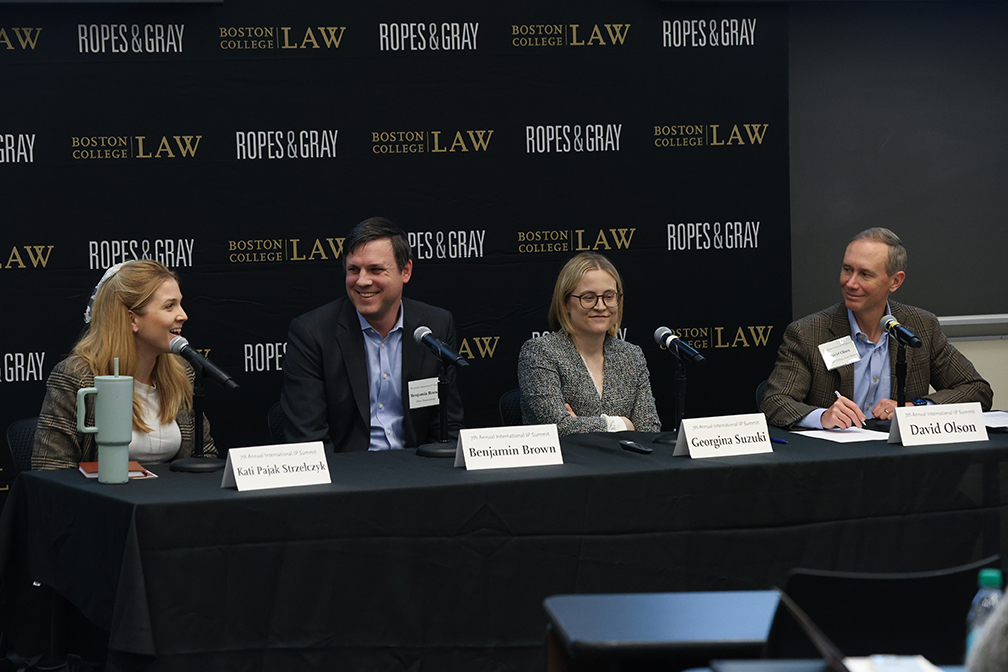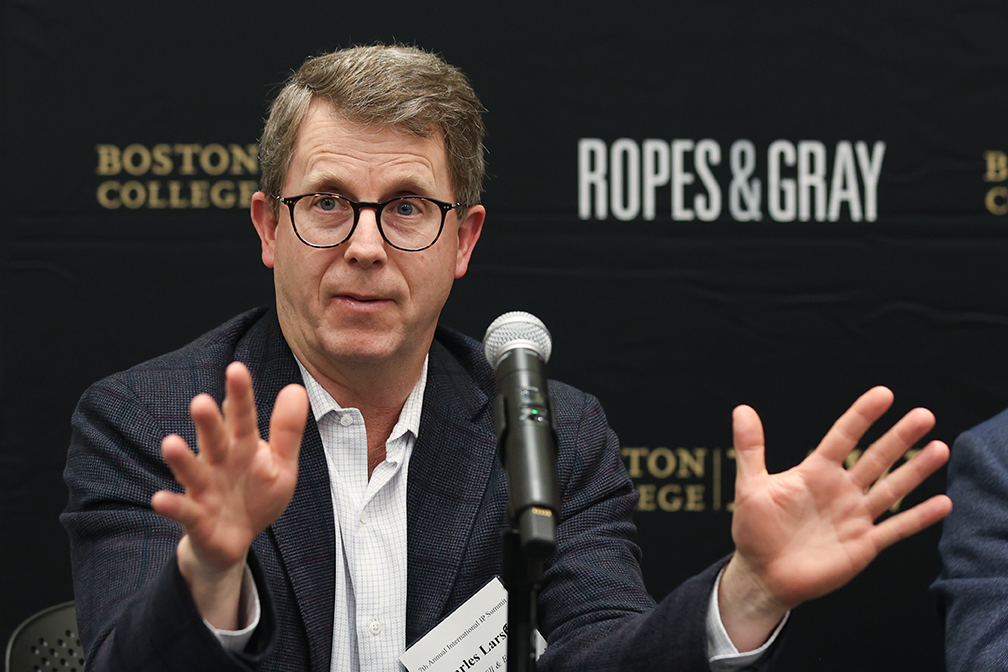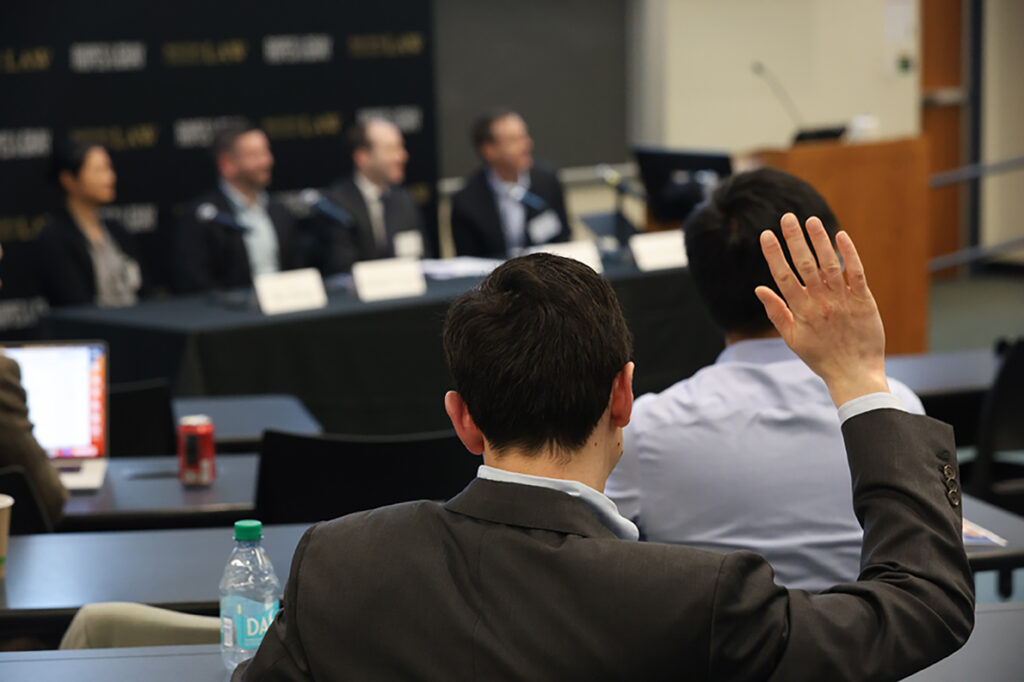Boston College Law School hosted the 7th Annual International Intellectual Property Summit on October 24 and 25, bringing together global experts in intellectual property from academia, law firms, in-house, business, and government. The summit was sponsored by BC Law’s Program on Innovation and Entrepreneurship (PIE) in partnership with Ropes & Gray.
In her opening remarks, Dean Odette Lienau highlighted the wave of astounding innovation we see today, innovation, she warns, that we risk taking for granted, as if it’s a naturally occurring phenomenon. “The reality, however, is that there are significant institutions and conditions required for widespread innovation.” One such institution is that of the law, a critical part of the process and an area that the summit focused on as it explored important ways to further the crucial legal evolutions and practices that make the global innovation economy possible.
David Korn, vice president of intellectual property and law at PhRMA, gave the keynote address in the form of a fireside chat with BC Law Professor David Olson.
Korn explored what PhRMA is, what it does, and how it impacts fair drug pricing for the average citizen. Put simply, he said, PhRMA is a trade association, an organization that represents research-based pharmaceutical companies. Just how much research? His estimate was somewhere around $800 billion over the last decade, researching and developing new treatments and cures.
Such innovation requires public policies to support it. As a lawyer focused on IP issues, Korn advocates for that support.
Drug development is not cheap nor is it easy, Korn noted. The timeline can take up to fifteen years and the costs are $2.6 billion on average. “We want the patent system to work well, but at the same time we don’t want a system to go beyond a reasonable time frame,” he said.
Korn talked through legislative and executive agency efforts to mitigate drug pricing and improve negotiations, including the new Inflation Reduction Act (IRA). According to Korn, the IRA still has a lot of issues to iron out, some related to their definition of a drug and some related to the congressional issues around its entire structure. He acknowledged that “Congress is active, there’s a lot pending, and some of the bills are in the IP space.”
Korn also elaborated on some recent innovation advances, including in the administration of medicine, such as developing just one injection instead of many to stop the progression or severity of a disease, or researching how technology can play a bigger role. “AI can help with drug discovery and finding different safety signals, leading to quicker development of products and quicker access of products by patients,” he concluded.
The summit presented a series of panelists from around the globe who are tackling IP progress, be it in AI research, patent litigation, or drug development.
Following Korn’s address, the IP Summit, which is overseen by Sandy Tarrant, faculty director of PIE, presented a series of panelists from around the globe who are tackling IP progress, be it in AI research, patent litigation, or drug development.
In the first of four panels, three experts came together for a talk titled, “The Unified Patent Court and Global Enforcement Strategy.” They discussed the newly formed Unified Patent Court (UPC), a European litigation system only sixteen months old that has already heard some 500 cases and litigated roughly 200 patents.
The UPC only grants European patents and typically deals with patent infringement, and its decisions are binding on the seventeen countries that participate in the system. With quick timelines and a panel of multi-country judges who are usually technical experts in the field of patents, the UPC diverges significantly from the US approach to deciding patent cases through non-specialist federal courts.
Charles Larsen, partner at McDermott, Will & Emery LLP, explained the contrast between UPC litigation and US litigation, “You’re not educating a jury who isn’t in this field. The judges are people who really know what they’re doing and can ask the right questions.” Panelist Chris de Mauny, a Bird & Bird LLP barrister and foreign legal consultant, expanded on how the preparation for a proceeding at the UPC looks very different from other court proceedings, including short timelines and very limited discovery.
The topics addressed during the other panels were “Leaky Models, IP Ownership, and Other Considerations for AI Dealmaking and Licensing,” “Bridging the Atlantic: Global AI Regulation in the UK, EU, US and China,” and “China Strategies for Life Sciences Companies, Research Universities and Institutes, and Academic Medical Centers.” Top of mind were regulations and guidelines that limit organizations’ implementation of AI, pending litigation related to AI, bipartisan legislation and rulemaking, and the global impact of these policies.
Day 2 of the summit saw a smaller group of experts gather for a roundtable discussion focused on how recent laws, regulations, economic changes, and technological advancements have impacted dealmaking.
Participants shared their views on current market trends; emerging areas of risk and opportunity and best practices, including how over one-third of startup investment is going to AI-related companies, copyright litigation around AI, the proposed BIOSECURE Act and its potential effects on the life sciences industry; and the CrowdStrike outage and cybersecurity and IT lessons learned.
Photographs by Reba Saldanha and Andres Leiva ’26
